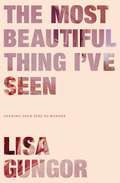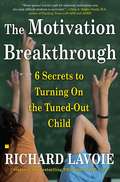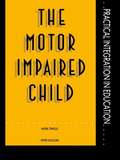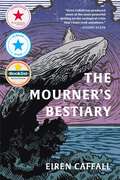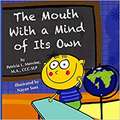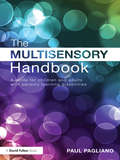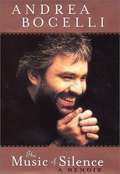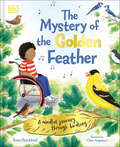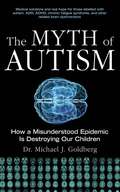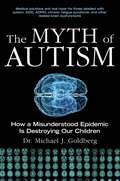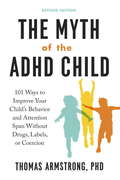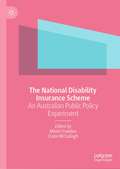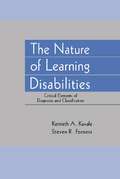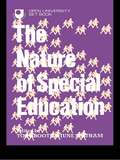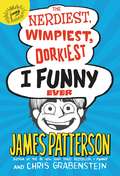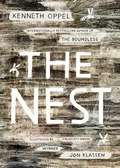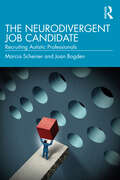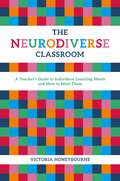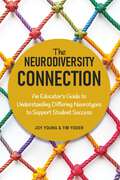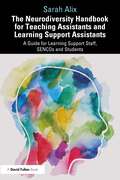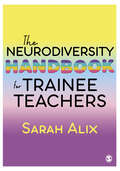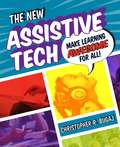- Table View
- List View
The Most Beautiful Thing I've Seen: Opening Your Eyes to Wonder
by Lisa GungorLisa Gungor thought she knew her own story: small-town girl meets boy in college and they blissfully walk down the aisle into happily ever after. Their Christian faith was their lens and foundation for everything—their marriage, their music, their dreams for the future. But as their dreams began to come true, she began to wonder if her religion was really representative of the &‘good news&’ she had been taught.She never expected the questions to lead as far as they did when her husband told her he no longer believed in God. The death of a friend, the unraveling of relationships and career, the loss of a worldview, and the birth of a baby girl with two heart defects all led Lisa to a tumultuous place; one of depression and despair. And it was there that her perspective on everything changed. The Most Beautiful Thing I&’ve Seen tells the story of what can happen when you dare to let go of what you think to be true; to shift the kaleidoscope and see new colors and dimension by way of broken pieces.Lisa&’s eloquent, soul-stirring memoir brings you to a music stage before thousands of fans and a front porch where two people whisper words that scare them to the core. It is the story of how doubt can spark the beginning of deeper faith; how a baby born with a broken heart can bring love and healing to the hearts of many, and ultimately, how the hardest experience in life often ends up saving us.
The Motivation Breakthrough: 6 Secrets to Turning On the Tuned-out Child
by Richard LavoieAny child can be motivated to learn. "If he only would apply himself..." "She can do it if she puts her mind to it." "He just doesn't seem to care." "She's just not trying." Motivation is the key to learning. But very few parents and teachers have an effective arsenal of techniques at their disposal. Enter educator and acclaimed author Rick Lavoie, who arms all those who deal with children with proven, effective tools and strategies they can use to encourage any child to learn and achieve success. Lavoie's practical, innovative approach begins with a quiz that helps a parent or teacher identify -- using six different possible models -- a child's motivational style. Is she motivated by power? Does he need prestige? Does praise mean a lot to this child? Does contact with other people inspire this child? Does he like to do projects? Does she enjoy receiving prizes? He then explores each motivational style in depth, presenting proven techniques, strategies, and scripts that can be used in the classroom and at home to break through a child's apathy and discouragement and inspire him to succeed and achieve. Along the way, Lavoie explodes some common myths about motivation: for instance, he demonstrates that rewards, punishment, and competition are not effective motivational tools. He gives specific advice throughout for parents and teachers of children with learning disabilities and provides detailed instructions for how to create a motivated classroom. He outlines the parent's role, the teacher's role, and suggests ways in which they can work together to encourage children to reach their potential. The book's final chapter, "What Does Madison Avenue Know...That Maple Street Elementary School Doesn't," reveals what parents and teachers can learn from some of the most powerful motivators in our children's world: advertisers. With empathy and understanding, backed by decades of experience in the classroom, Rick Lavoie gives parents and teachers the key to unlock any child's enthusiasm and responsiveness. The Motivation Breakthrough will revolutionize the way parents, teachers, and professionals reach out to and motivate all children.
The Motor Impaired Child (Practical Integration In Education Ser.)
by Mrs Myra Tingle Myra TingleThe Motor Impaired Child provides a wealth of information and practical guidance for teachers on both the social and educational implications of impairment. Issues covered include working with parents, physical disability in childhood, and the problems posed by limited mobility. Practical advice is given on the integration of impaired children in the classroom, and the final sections focus on how a motor impaired child may be helped through adolescence towards independent adulthood.
The Mourner's Bestiary
by Eiren CaffallA critically-acclaimed literary memoir braiding together environmental research and the personal journey of generational healing, grief, and chronic illness.Author Eiren Caffall is the inheritor of a family legacy of two hundred years of genetic kidney disease and the mother of a child who may inherit that legacy. A literary memoir on loss, chronic illness, and generational healing, Caffall&’s The Mourner&’s Bestiary is also a meditation on grief and survival told through the stories of animals in two collapsing marine ecosystems—the Gulf of Maine and the Long Island Sound—and the lives of a family facing a life-threatening illness on their shores. The Gulf of Maine is the world&’s fastest-warming marine ecosystem, and the Long Island Sound has been the site of conservation battles that predict the fights ahead for the Gulf. "Beguiling, idiosyncratic [...] Caffall writes with plangent intensity about our responsibility toward the planet, and her eye for the wonder and beauty of ocean life pierces the illusion of disconnected existence." ? Whiting Creative Nonfiction Grant judges citation "Eiren Caffall has produced some of the most powerful writing on the ecological crisis I have read anywhere. Caffall is a gifted writer, and this book is strong medicine." ? Naomi Klein, author, social activist, and filmmaker
The Mouth With A Mind Of Its Own
by Patricia Mervine Nayan SoniMatthew has a problem. His mouth has a mind of its own. His brain thinks one thing, but his mouth says another. He can’t participate in class discussions. He can’t ask the other kids to play with him at recess. He can’t even say his own name! Luckily, he is referred to the school speech therapist, who helps him tame his wild mouth. This story was written by Patricia L. Mervine, M.A., CCC, a speech/language pathologist who works with students like Matthew every day.
The Multisensory Handbook: A guide for children and adults with sensory learning disabilities
by Paul PaglianoDo you support a child or adult with sensory perceptual issues or cognitive impairment? For people with challenging sensory and cognitive conditions, everyday life can become so unpredictable and chaotic that over time, lack of engagement can often lead to a state of learned helplessness. In this insightful text, Paul Pagliano shows how ‘learned helplessness’ can be transformed into learned optimism through multisensory stimulation, and explains how a programme of support can be designed and modulated to match the person’s needs, interests and abilities. Full of practical, easy to use multisensory assessment tools and intervention strategies, this book will help: foster a feeling of ease with the environment the child or adult experience pleasure and happiness kick-start their desire to explore encourage improved learning, social well-being and quality of life. The author offers an abundance of exciting multisensory stimulation ideas that can be applied to communication, play, leisure and recreation, therapy and education. Practical resources also show how to monitor and review applications to ensure they are being used in the most effective and enjoyable ways possible. Informed by an astute, up-to-date, comprehensive overview of research and theory, The Multisensory Handbook will appeal to primary professionals from a wide range of disciplines including education, health and social care.
The Music of Silence: A Memoir
by Andrea Bocelli Stanislao PuglieseYou don't have to be an opera fan to appreciate this beautifully written memoir by world-famous tenor Andrea Bocelli. Born among the vineyards of Tuscany, Bocelli was still an infant when he developed glaucoma. Music filtering into his room soothed the unsettled child. By the age of twelve he was completely blind, but his passion for music brought light back into his life. Here Bocelli reveals the anguish of his blindness and the transcendent experience of singing. He writes about his loving parents, who nurtured his musical interests, the challenges of learning to read music in Braille and of competing in talent shows, his struggles with law school, and his desire to turn an avocation into a way of life. He describes falling in love and singing in piano bars until his big break in 1992, when a stunned Pavarotti heard him sing "Miserere." The international acclaim and success that have followed Bocelli ever since have done nothing to dull his sense of gratitude and wonder about the world. No classical music fan can afford to be without this engaging and humble memoir of a fascinating and triumphant star. ANDREA BOCELLI wrote this memoir himself on a special Braille computer, without a ghostwriter. He chose to tell his own life story through the eyes of a boy called Amos, a charming and unusual device characteristic of this modest man. Bocelli lives in Monte Carlo and summers in Tuscany.
The Mystery of the Golden Feather: A Mindful Journey Through Birdsong
by Tessa StricklandDive into this enchanting story that takes children on a mindful journey by encouraging them to listen out for birdsong. When Felix finds a feather on his windowsill, he is eager to uncover what bird it belongs to. But the answer comes to him in a way he least expects it to, by simply taking a moment to pause, and listen to the music of the birds around him.Children aged 3-5 will love to learn about birdsong, capturing the calm and clarity we can find when we clear our heads to be more mindful. This beautiful book places thoughtful, lyrical words alongside stunning illustrations to make this a simply captivating read for little ones. What&’s more, at the end of the story are some simple mindfulness techniques that toddlers and carers can enjoy practicing together in everyday life.Inside the pages of this beautiful book about birdsong, you&’ll find:- A wonderful story combining mindfulness and nature that encourages readers to use the calming, mindful practices of the book in real life.- Stunning illustrations that go alongside simple, age-appropriate and lyrical text for little ones. - Four mindfulness reference pages at the back of the book, providing advice and tips for parents and carers to share with their child in everyday life.- The beautiful cover and special finishes make this a treasured keepsake gift.A personal note from the author, Tessa Strickland, invites little ones to join Felix as he stops to appreciate the present moment, and the wonderful natural sounds it has to offer. Whether you are looking to find a quiet moment, or for a way to remind little ones to pause and take in their surroundings, The Mystery of the Golden Feather is a book they can treasure forever.
The Myth of Autism: How a Misunderstood Epidemic Is Destroying Our Children
by Elyse Goldberg Michael GoldbergExperts agree that America is in the midst of a disturbing epidemic of what has thus far been diagnosed as autism. In just thirty years autism diagnoses have risen from 1 in 5,000 children to 1 in 110, according to the Centers for Disease Control and Prevention. But in the history of our society there has never been an "epidemic" of any developmental or genetic disorder-it is scientifically impossible. So what is this mysterious affliction known as "autism," and how can we stop it? Dr. Goldberg and his colleagues illustrate why autism cannot be genetic, but is a symptom of a treatable neurological disease that attacks the brain's immune system. Readers will come to understand: Autism is not psychological or developmental, but a medical disease. Autism is caused by a dysfunction in the neuro-immune system and often by secondary neurotropic viruses that impact the neuro-immune system and brain. Illnesses such as autism, ADD/ADHD, and chronic fatigue syndrome all have different "labels" but are actually variations on the same thing: neuro-immune dysfunction syndromes (NIDS). A NeuroSPECT scan is a diagnostic tool which, used in combination with proven therapies and treatments described in this book, is saving lives today, while opening the door to new therapies. What you can do to transform your own life or the lives of your loved ones. Dr. Goldberg believes that in order to save the next generation of children from the incurable stigma of an autism diagnosis, we must quickly realize that all of these disorders are the result of a curable disease process.
The Myth of Autism: How a Misunderstood Epidemic Is Destroying Our Children, Expanded and Revised Edition
by Michael J. GoldbergExperts agree that America is in the midst of a disturbing epidemic of what has thus far been diagnosed as autism. In just thirty years autism diagnoses have risen from 1 in 5,000 children to 1 in 110, according to the Centers for Disease Control and Prevention.But in the history of our society there has never been an "epidemic" of any developmental or genetic disorder-it is scientifically impossible. So what is this mysterious affliction known as "autism," and how can we stop it? Dr. Goldberg and his colleagues illustrate why autism cannot be genetic, but is a symptom of a treatable neurological disease that attacks the brain's immune system. Readers will come to understand that Autism is not psychological or developmental, but a medical disease, Autism is caused by a dysfunction in the neuro-immune system and often by secondary neurotropic viruses that impact the neuro-immune system and brains, illnesses such as autism, ADD/ADHD, and chronic fatigue syndrome all have different "labels" but are actually variations on the same thing: neuro-immune dysfunction syndromes (NIDS), and what you can do to transform your own life or the lives of your loved ones."Dr. Goldberg's knowledge base is greater than anyone else's in this treatment area. He is the best expert in this field, in my opinion. I could have taken my son to any autism doctor in the world and I chose Dr. Goldberg."--Bruce L. Russell, MD, FAAFP
The Myth of the ADHD Child, Revised Edition: 101 Ways to Improve Your Child's Behavior and Attention Span Without Drugs, Labels, or Coercion
by Thomas ArmstrongA fully revised and updated edition of the groundbreaking book on tackling the root causes of children’s attention and behavior problems rather than masking the symptoms with medication.More than twenty years after Dr. Thomas Armstrong's Myth of the A.D.D. Child first published, he presents much needed updates and insights in this substantially revised edition. When The Myth of the A.D.D. Child was first published in 1995, Dr. Thomas Armstrong made the controversial argument that many behaviors labeled as ADD or ADHD are simply a child's active response to complex social, emotional, and educational influences. In this fully revised and updated edition, Dr. Armstrong shows readers how to address the underlying causes of a child's attention and behavior problems in order to help their children implement positive changes in their lives. The rate of ADHD diagnosis has increased sharply, along with the prescription of medications to treat it. Now needed more than ever, this book includes fifty-one new non-drug strategies to help children overcome attention and behavior problems, as well as updates to the original fifty proven strategies.
The National Agenda for the Education of Children and Youths with Visual Impairments, Including Those with Multiple Disabilities
by Kathleen M. Huebner Brunhilde Merk-Adam Donna Stryker Karen WolffeWhat the National Agenda Means for Visually Impaired Children, Development of the National Agenda, National Agenda Goal Statements, Importance of the Goal Statements, Strategies for Achieving the Goal Statements, Achievement of the Goal Statements, National Agenda Steering Committee, National Goals and Leader Organizations, Endorsements.
The National Disability Insurance Scheme: An Australian Public Policy Experiment
by Mhairi Cowden Claire McCullaghThe National Disability Insurance Scheme (known commonly as the NDIS) was introduced as a radical new way of funding disability services in Australia. It is a rare moment in politics and policy making that an idea as revolutionary, ambitious and expensive as the NDIS makes it into its implementation phase. Not surprising, then, that the NDIS has been described by many as the biggest social shift in Australia since Medicare. This book will be a key text for scholars and public policy professionals wishing to understand the NDIS, how it was designed, and lessons learned through its introduction and roll-out. The book addresses how the NDIS has intersected with particular cohorts and sectors, and some of the challenges that have arisen. It highlights the experiences of people with disability through a collection of personal stories from participants and families in the NDIS. The key insights from this large scale public policy experiment are relevant for anyone interested in social change in Australia, or internationally.
The Nature of Learning Disabilities: Critical Elements of Diagnosis and Classification
by Kenneth A. Kavale Steven R. FornessThe category of learning disabilities continues to be among the most contentious in special education. Much of the debate and dissent emanates from a lack of understanding about its basic nature. The failure to evolve a comprehensive and unified perspective about the nature of learning disabilities has resulted in the concept being lost. The loss is best illustrated through the failure to answer this seemingly simple question: What is a learning disability? Using historical, empirical, theoretical, conceptual, and philosophical analyses, this volume explores a number of problems and issues facing the field of learning disabilities. The chapters cover historical influences, definitional problems, primary characteristics, assessment practices, theoretical development, major themes, research and measurement models, and long-term outcomes. The goal is to explicate the nature of learning disabilities by analyzing what it was supposed to be, what it has become, and what it might be. A predominant theme running through this text is the necessity for the field of learning disabilities to regain integrity by recapturing its essence.
The Nature of Special Education: People, Places And Change (Open University Set Book Ser.)
by Tony Booth & June StathamFirst published in 1981. Routledge is an imprint of Taylor & Francis, an informa company.
The Nature of Stuttering
by Charles G. Van RiperThis text organizes & summarizes a vast wealth of information concerning the nature of stuttering.
The Nerdiest, Wimpiest, Dorkiest I Funny Ever (I Funny #6)
by James Patterson Chris GrabensteinEverybody's favorite kid comic, Jamie Grimm, is out to conquer the world--with laughter, of course!Comedian Jamie Grimm can't help feeling like he's reached the top--he has his own smash hit TV show and he's won a national funny-kid competition. But now he's taking his fame and fortune to international levels by competing in the upcoming world kid comic contest! Will Jamie prove that he's the funniest kid on earth--or does he stand (or sit!) to lose his crown?
The Nest
by Kenneth Oppel Jon Klassen<P>Steve just wants to save his baby brother--but what will he lose in the bargain? This is a haunting gothic tale for fans of Coraline, from acclaimed author Kenneth Oppel (Silverwing, The Boundless) with illustrations from Caldecott Medalist Jon Klassen. <P>For some kids summer is a sun-soaked season of fun. But for Steve, it's just another season of worries. Worries about his sick newborn baby brother who is fighting to survive, worries about his parents who are struggling to cope, even worries about the wasp's nest looming ominously from the eaves. So when a mysterious wasp queen invades his dreams, offering to "fix" the baby, Steve thinks his prayers have been answered. All he has to do is say "Yes." But "yes" is a powerful word. It is also a dangerous one. And once it is uttered, can it be taken back? Celebrated author Kenneth Oppel creates an eerie masterpiece in this compelling story that explores disability and diversity, fears and dreams, and what ultimately makes a family. <P><b> Nominee for the 2018 Young Reader's Choice Award </b> <i>(Pacific Northwest Library Association)</i>
The Neurodivergent Job Candidate: Recruiting Autistic Professionals
by Joan Bogden Marcia ScheinerThis book provides guidance on recruiting, interviewing, and onboarding practices that will allow employers to successfully hire neurodivergent professionals into inclusive, competitive employment. Today, 35% of 18-year-olds with an autism spectrum diagnosis attend college, yet they have a 75–85% under-employment and unemployment rate after graduation. While organizations are looking to expand their diversity and inclusion hiring efforts to include neurodivergent professionals, current recruiting and interviewing practices in general are not well-suited to this. With over one-third of the US population identifying as neurodivergent, employers need to address how to attract this talent pool to take advantage of a meaningful segment of the workforce. Readers of this book will gain an understanding of how to guide their organizations through the creation of recruiting, interviewing, and onboarding processes tailored to neurodivergent professionals in any field. Written by authors with extensive experience working in the corporate world and consulting with Fortune 1000 companies on autism hiring efforts, this book is targeted at employers, acknowledging their perspective. Structured as a reference guide for busy recruiters, hiring managers, and supervisors, this book can be read in its entirety, in relevant sections as needed, or used as a refresher whenever necessary. This book also provides a background on the thinking styles of autistic individuals, giving the reader a deeper understanding of how to best support neurodivergent jobseekers.
The Neurodiverse Classroom: A Teacher's Guide to Individual Learning Needs and How to Meet Them
by Victoria HoneybourneWith specific learning difficulties more prevalent than ever in mainstream schools, this is the essential guide for teachers wishing to create inclusive and successful learning environments in diverse classrooms. Focusing on promoting acceptance and self-esteem of each child rather than on labelling their difficulties, it shows how to make good use of simple resources and meet a wide range of needs, including children with ADHD, autism, OCD, dyslexia and special speech and language needs. The practical advice and strategies in this book enable schools to become more accepting places for all pupils, and embrace neurodiversity as the new 'normal' in education today.
The Neurodiversity Connection: An Educator’s Guide to Understanding Differing Neurotypes to Support Student Success
by Joy Young Tim YoderSupporting students becomes a compelling journey set in motion by asking, “What am I missing?” <P><P> Years ago, as rookie teachers in a rural Oklahoma school, Joy Young and Tim Yoder formed a lasting friendship. Blending heartfelt storytelling with thoughtful research, they invite you to rethink traditional teaching practices and embrace curiosity as a catalyst for cultivating inclusive, engaging education that celebrates every learner. <P><P> In this guide you’ll discover: <P><P> <li> Insightful understandings of differing neurotypes <li> Relatable personal anecdotes <li> Steps for creating sensory supportive environments <li> Candid student comments <li> Creative approaches to strengthening strengths <li> Strategies and activities that ignite hope and inspire growth <P><P> Whether you are a new teacher, a school leader, a seasoned professional, or a devoted parent, The Neurodiversity Connection empowers you to create environments where every learner feels seen, supported, and celebrated.
The Neurodiversity Handbook for Teaching Assistants and Learning Support Assistants: A Guide for Learning Support Staff, SENCOs and Students
by Sarah AlixThis highly practical book supports the knowledge and development of teaching assistants and learning support assistants (TAs/LSAs) in their understanding of neurodivergent pupils. Considering a neurodivergent world is vital in society today, and even more so in the classroom. Starting with a model of difference rather than deficit and highlighting the complexities involved, this accessible resource focuses on effective strategies to support these pupils and explores the vital role of learning support in a range of different contexts. Rich in pedagogical features, this book includes chapter objectives, areas for the reader to reflect upon, links throughout to the Teaching Assistant Standards and case studies for the reader to examine. Each chapter also has a further reading section which will include links to articles, websites, and organisations that can aid and support the development of TAs and LSAs. This important work will provide Special Educational Needs Co-ordinators (SENCos) with a framework to support their support staff in the classroom.
The Neurodiversity Handbook for Trainee Teachers
by Sarah AlixConsidering a neurodivergent world is vital in society today, and even more so in the classroom. This book will support your knowledge and development as a trainee teacher so you can better understand the complexities of working with neurodivergent pupils. Starting with a model of difference rather than deficit, this book will guide trainee teachers to understand neurodiversity within the classroom, providing strategies which aim to support their students. Dr Sarah Alix is Initial Teacher Training Programme Director with the Sigma Trust
The Neurodiversity Handbook for Trainee Teachers
by Sarah AlixConsidering a neurodivergent world is vital in society today, and even more so in the classroom. This book will support your knowledge and development as a trainee teacher so you can better understand the complexities of working with neurodivergent pupils. Starting with a model of difference rather than deficit, this book will guide trainee teachers to understand neurodiversity within the classroom, providing strategies which aim to support their students. Dr Sarah Alix is Initial Teacher Training Programme Director with the Sigma Trust
The New Assistive Tech: Make Learning Awesome For All!
by Christopher BurgajSchool districts often struggle to develop consistent practices for meeting the assistive needs of special education students. This playful yet professional book will help public school educators select, acquire and implement technology to help all students, but especially those with special needs. The New Assistive Tech is a catalyst for breaking down walls between special education and general education, and will help all educators realize they have tech knowledge (and can build upon that knowledge) that can be used to support students with disabilities. <p><p> This book: details how an educational team can request assistance to determine technology needs; explains how to conduct and document assessments to help an educational team make informed decisions about technology needs; describes a proactive approach to professional development for individuals and for those who train others on the use of technology; assists individuals or teams in creating an action plan for developing a culture of inclusion; and interweaves stories, songs and other exciting features to make learning fun!
